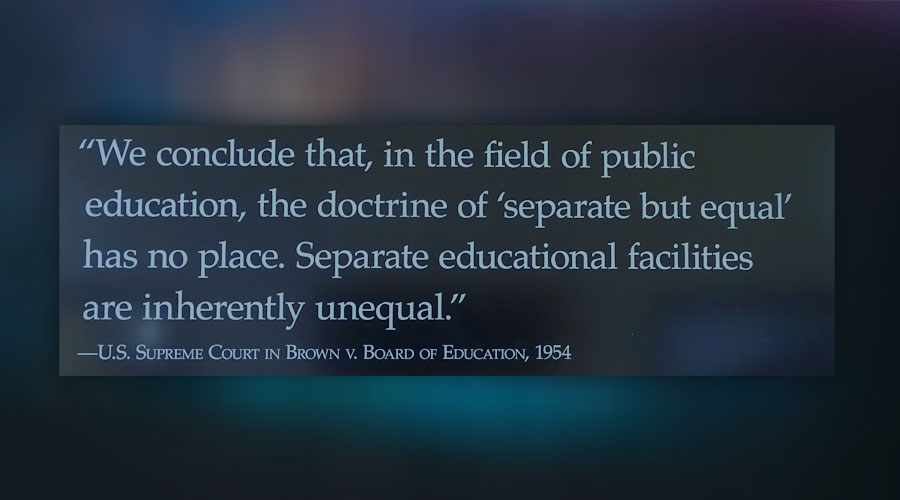May 17, 2021 marks 67 years since the landmark decision of Brown v. Board of Education (1954), the Supreme Court case which impacted the landscape of civil rights for generations. On this momentous anniversary, it’s important to remember Brown’s legacy and recognize its impact on racial justice in America.
The story of the landmark case began when Oliver Brown filed a class-action suit against the Board of Education of Topeka, Kansas in 1951 after his daughter was denied entrance to Topeka’s all-white elementary schools. Brown’s complaint cited the 14th Amendment’s equal protection clause, which holds that no state can “deny to any person within its jurisdiction the equal protection of the laws.”
In the Court’s majority decision, Chief Justice Earl Warren wrote that the previous Plessy v. Ferguson (1896) ‘separate but equal’ doctrine had no place, as segregated schools were “inherently unequal.” While Brown is a historic landmark that helped spark desegregation efforts, many officials in the South continued to work vehemently against implementing the doctrines in the decision. Still, the impact of the case fueled a growing civil rights movement in the U.S., inspiring activists and future laws.
The Struggle for Racial Equity from the School Room to the Ballot Box
In 1969, a young Robert F. Smith was bused to a well-resourced white elementary school in Denver as a result of the reforms of Brown and desegregation. Although many of his white neighbors resisted the busing efforts, that experience drastically changed Smith’s life. A dedicated student from a young age, he would go on to graduate from Cornell University and Columbia University, found Vista Equity Partners and become a prolific businessman and philanthropist.
To this day, Smith is a steadfast and vocal advocate for racial equity and justice. In March 2021, Smith signed onto a letter along with 72 Black executives, condemning a new wave of restrictive voting bills in states like Georgia. These bills would make it more difficult for Black communities to vote, furthering the racist and exclusionary history of these states’ laws.
Robert F. Smith’s History of Education Support
Smith has also taken an active role in fighting for students of color, investing in programs to champion their success and ease their financial burden. In December 2020, Smith announced the creation of the Robert F. Smith STEAM Academy in Denver, Colorado, intending to embrace science, technology, engineering, arts and math. Through the Fund II Foundation, of which he is founding director and President, Smith has also supported New York’s Eagle Academy schools for young men, which operate as a part of the New York Public School system, and provide rigorous education and mentorship for students in some of the city’s most challenging neighborhoods, as well as in Newark, New Jersey.
Aside from K-12 education, Smith has also been committed to fighting for racial justice in higher education. In 2019, Smith made global headlines when he pledged to pay off the entire student loan debt of the nearly 400 graduates of Morehouse College. “On behalf of the eight generations of my family who have been in this country, we’re going to put a little fuel in your bus,” he said at the Atlanta school’s 2019 commencement. Smith also went on to found the Student Freedom Initiative (SFI), a nonprofit that aims to provide financial and career support for HBCU students.
Read more here about the legacy of Brown v. Board of Education, Georgia’s restrictive voter law and Smith’s work on racial justice.






